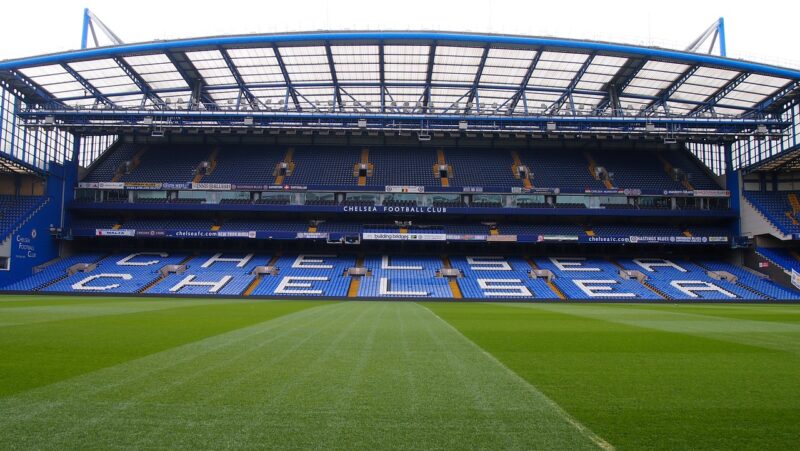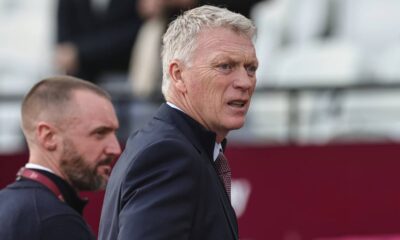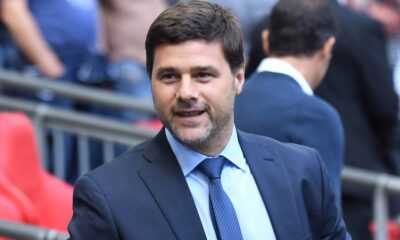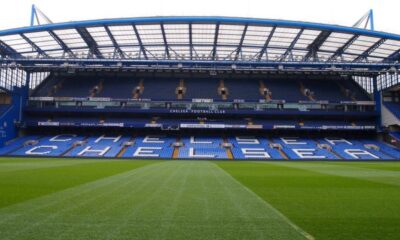Football
Roberto Di Matteo as Chelsea’s immortal hero. As a player he shone in the final duels, as a coach he and his club dominated the Champions League for the first time in history
Roberto Di Matteo may not be one of the greatest player and coaching legends in the world of football, but one thing no one can take away from him. He is an absolute icon at Chelsea London. He was important in her jersey as a player, and as an interim coach he led her into a world of unchallenged greats.

Roberto Di Matteo may not be one of the greatest player and coaching legends in the world of football, but one thing no one can take away from him. He is an absolute icon at Chelsea London. He was important in her jersey as a player, and as an interim coach he led her into a world of unchallenged greats.
Roberto Di Matteo: Chelsea’s record signing, a step into the unknown
The year was 1970 when Roberto Di Matteo was born to Italian immigrants in Schaffhausen, Switzerland. A working-class family, education first. No one in the family had ever played sport at a professional level.
But Roberto was an excellent student, which meant that his school and the companies where he had internships or temporary jobs allowed him to leave a little early to train in football, which he fell in love with at an early age.
At the age of 16 he was already playing for the Schaffhausen A-team, even playing in the second Swiss league with them. At the age of 20, he turned professional. He even played for the famous FC Zurich. But after a year at that club, he made an unexpected move.
He was offered a move to the small club FC Aarau, which was run by a coach he knew from Schaffhausen. In his first season with the team he won the Swiss title and after that he headed to Italy. He was bought by Lazio Rome.
“I played three seasons at Lazio. I was very motivated, very ambitious. I wanted to push myself professionally and humanly. I felt my growth had slowed down. When it looked like we were close to winning the trophy, something happened that delayed us again,” Di Matteo recalled in The Big Interview.
That’s why he decided to take a bold step. He left the dominant Serie A and went to Chelsea. Costing £5m, it was a record transfer in club history. The legendary Ruud Gullit was a big part of his arrival.
“He told me his plans, how the Premier League was going overall. I found out it was an ambitious club, he did everything he could to make my arrival happen. I didn’t know anything about English football. I took it as a personal development,” the 33-year-old Italian let slip.
Final hero rewrote Chelsea history, ended career at 31
After arriving at Chelsea in 1996, Roberto Di Matteo began to make a name for himself very quickly. He scored on his debut and had a very noticeable impact on the Blues’ play. He became a hero especially in big and final matches.
He started rewriting Chelsea’s history in his very first season in England when he shot the club to victory in the FA Cup in 1997. In the final against Middlesbrough he scored after just 34 seconds, this is the fastest goal in the history of final matches in the oldest club competition in football.
“It was a special day. I scored the first goal of the game, which was also a record. On top of that, I was named the best player of the match. The whole family was in the stadium, it was the first trophy for Chelsea in 26 years, we could play the Cup Winners’ Cup the next season. Itwas a big step,” Di Matteo recalled.
It’s worth mentioning that both Roberto didn’t know English football very well and in Switzerland, when he was a kid, they only broadcast FA Cup final matches. That made it all the more special for him.
He just didn’t stick around for a single final goal. He helped Chelsea to victory in the League Cup in 1998, again making it to the final, and in total he scored three goals in four games in that competition that season.
In addition, he helped the team to the Cup Winners’ Cup trophy in 1998. He scored three goals in eight games, adding two assists, one of which was in the final against Stuttgart. He scored two goals against Slovan Bratislava.
He also played in Chelsea’s win over Real Madrid in the European Super Cup that year. The year 2000 brought him the decisive goal against Aston Villa in the League Cup final,
Overall, he won six trophies as a player with the Blues, winning all the finals at the old Wembley. In short, a great card. But at 31, it came as a shock. Triple fractures in his leg, 18 months of trying to get back on the pitch. It didn’t work. Career over. What’s next?
By returning to Chelsea, he took a step back to move forward
As most football fans probably know by now, Roberto Di Matteo switched to coaching after his career ended. “I started to get my coaching license from the lowest level, I went back to university. I didn’t know exactly what I was going to do. I didn’t plan to quit football at 31,” he says.
He first managed MK Dons, then went on to take West Bromwich Albion to the Premier League in his first season at the club. But in 2011 he took a step back to move forward. He returned to Chelsea, but only in an assistant role when the talented André Villas-Boas was head coach.
“I only accepted the offer because it was Chelsea. I was looking forward to working with Boas, he made a very good name for himself, he came after a successful season at Porto. I was curious to see what I could learn from him. I had to explain my move to a lot of people again. I had experience of the Premier League as a head coach, nobody understood why I was coming in as an assistant. But I mainly saw the positives in it,” expressed the Swiss native.
Roberto Di Matteo wins first Champions League title with Chelsea
Chelsea were in a rebuilding process, Boas was not doing well at all, there was a lot of talk about problems between the players and the coach. Roberto Di Matteo doesn’t deny that. He says the transition phase started when Carlo Ancelotti was in charge. Then when a youngster like Boas came in and several big stars and club legends were sitting in the cabinet, it didn’t do any good.
“There were a lot of big names, experienced players who had some great seasons at Chelsea. That gives you a kind of power within the club, you feel you can influence the players in the booth. It wasn’t easy to manage,” he spoke of the end of the talented Portuguese.
So Boas was sacked and Di Matteo took over as head coach. What followed was a quick turnaround for the better. Chelsea began to move forward in the Premier League, but beyond that they won two trophies. Namely the FA Cup and most notably the Champions League in 2012.
The reason why Di Matteo has thrived? The players, in his words, knew what kind of footballer he was and what he had achieved at Chelsea, how connected he was to the club. That’s why he was fantastic to work with, even with greats like Petr Cech, Didier Drogba, John Terry and Frank Lampard.
“It was a magical period. We made part of the club’s history together. Chelsea won the Champions League for the first time. I think we were also the first from London to do it. Nobody believed in us. The players deserved it the most. They gave their all to the club and were rewarded. They were at an age where it was probably their last chance to win a major trophy. It was fantastic,” concluded the Chelsea hero.
However, he did not last long at the club. He went on to coach at Schalke and Aston Villa, but did not follow up his success at Chelsea.
Source: Chelsea FC, The Big Interview, UEFA










